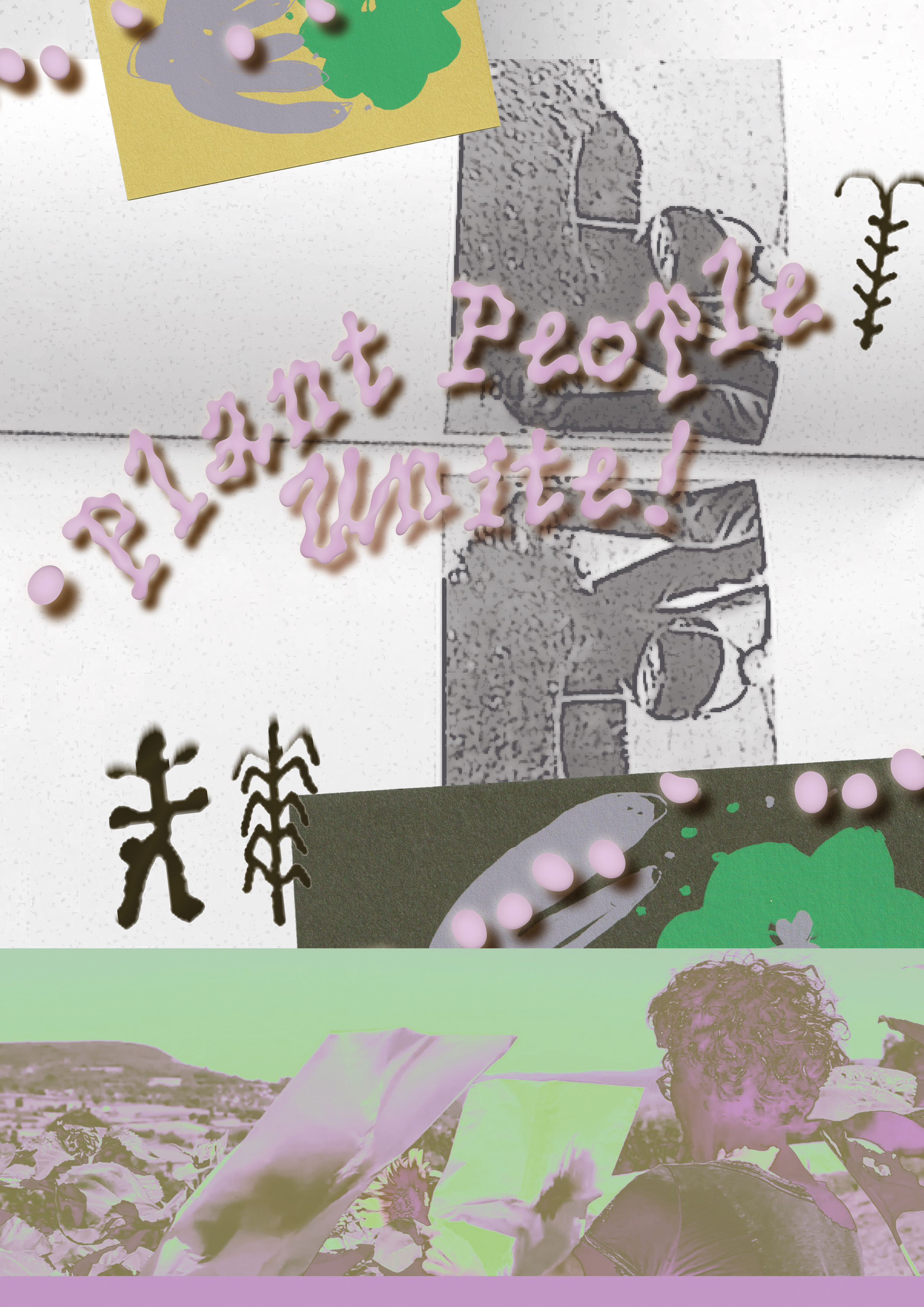Le goût du futur
2023 - ong.
2023 - ong.
Le goût du futur is an ongoing
artistic research project conceived by Alexandra Baumgartner and Isabelle Weber
as a video installation accompanied by photographic and sculptural elements. The project explores the nature of
time through an archaeological artifact from the Neolithic period – the Bread
of Twann – and questions the conventional understanding of foodstuffs as
inanimate goods. It invites reflection on the historically grown entanglements
between humans, cultivated plants, nourishment, and environment, as well as on
the myths that take root within the apparent facts they yield. The bread serves
as a speculative tool for time travel, situating human actors in new relations
to geological and more-than-human temporal horizons.
In Baumgartner and Weber’s practice, fragments from diverse sources of knowledge are brought into relation and fabulated upon. Layered across and against one another, images drawn from the archaeological storage facility in Bern, from bread researcher Max Währen’s personal archives and work diaries, and from staged settings trace both the emergence and the erosion of knowledge.
In Baumgartner and Weber’s practice, fragments from diverse sources of knowledge are brought into relation and fabulated upon. Layered across and against one another, images drawn from the archaeological storage facility in Bern, from bread researcher Max Währen’s personal archives and work diaries, and from staged settings trace both the emergence and the erosion of knowledge.
Filed under: artistic research, collaboration, video, installation

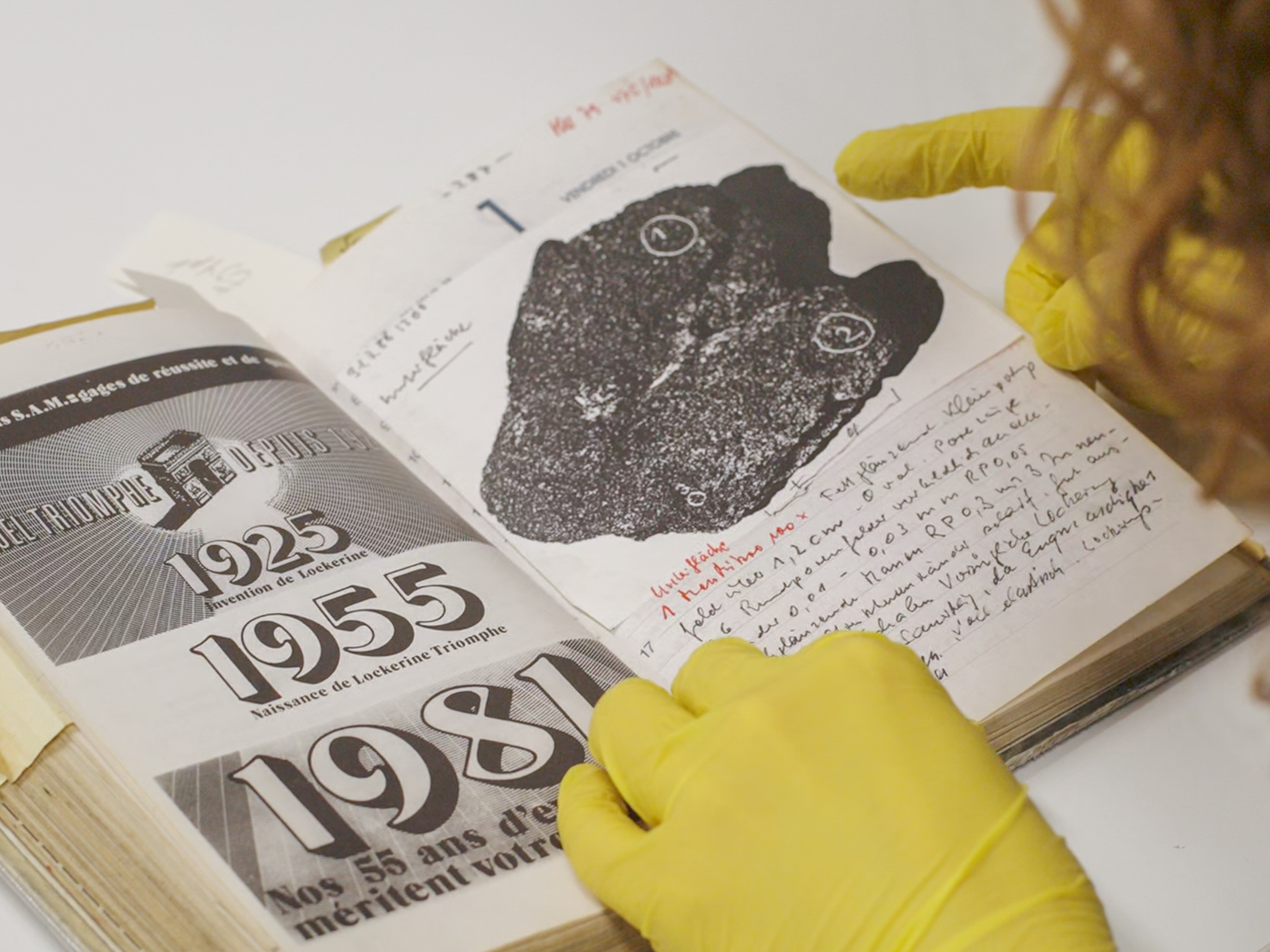
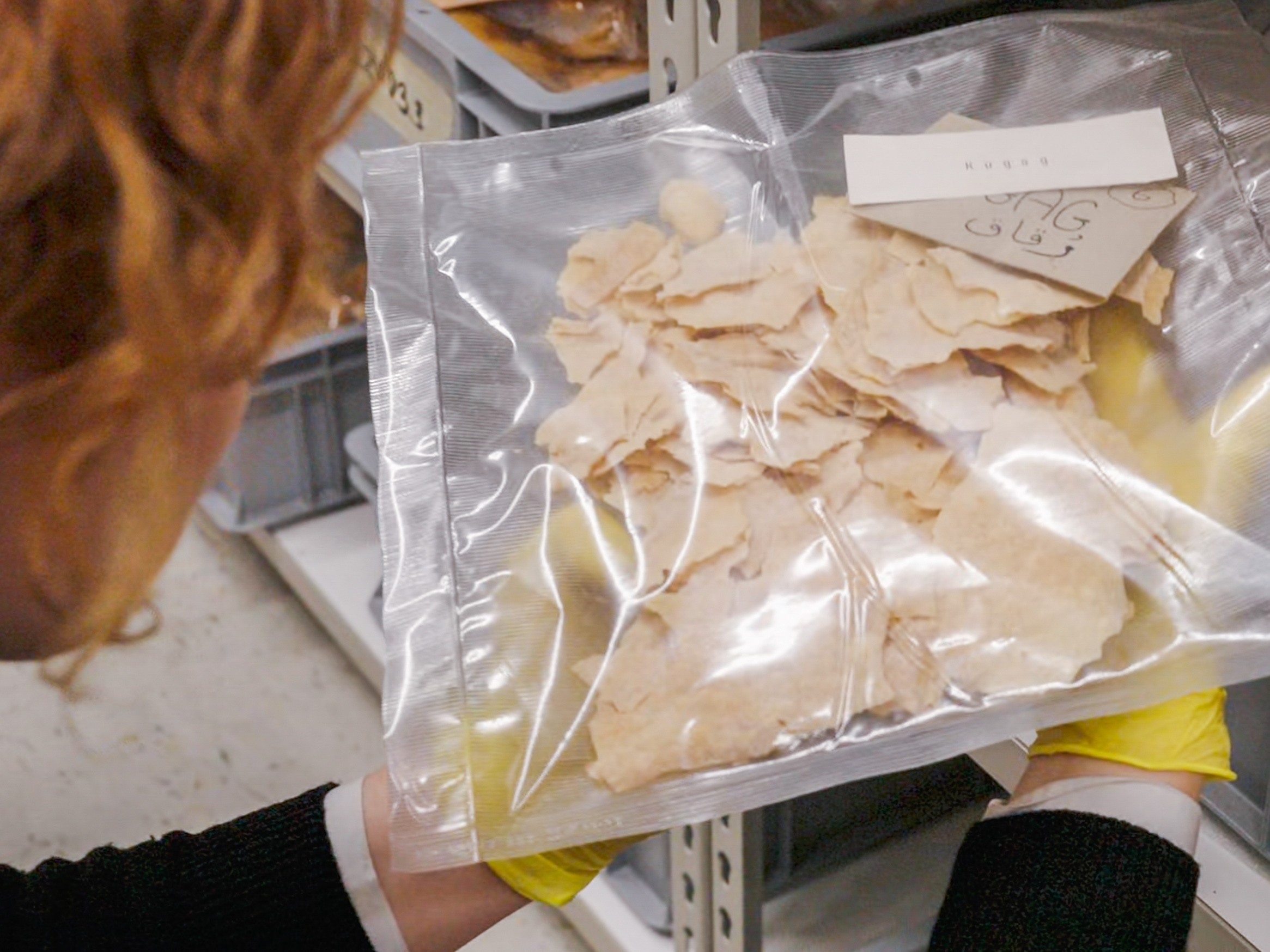
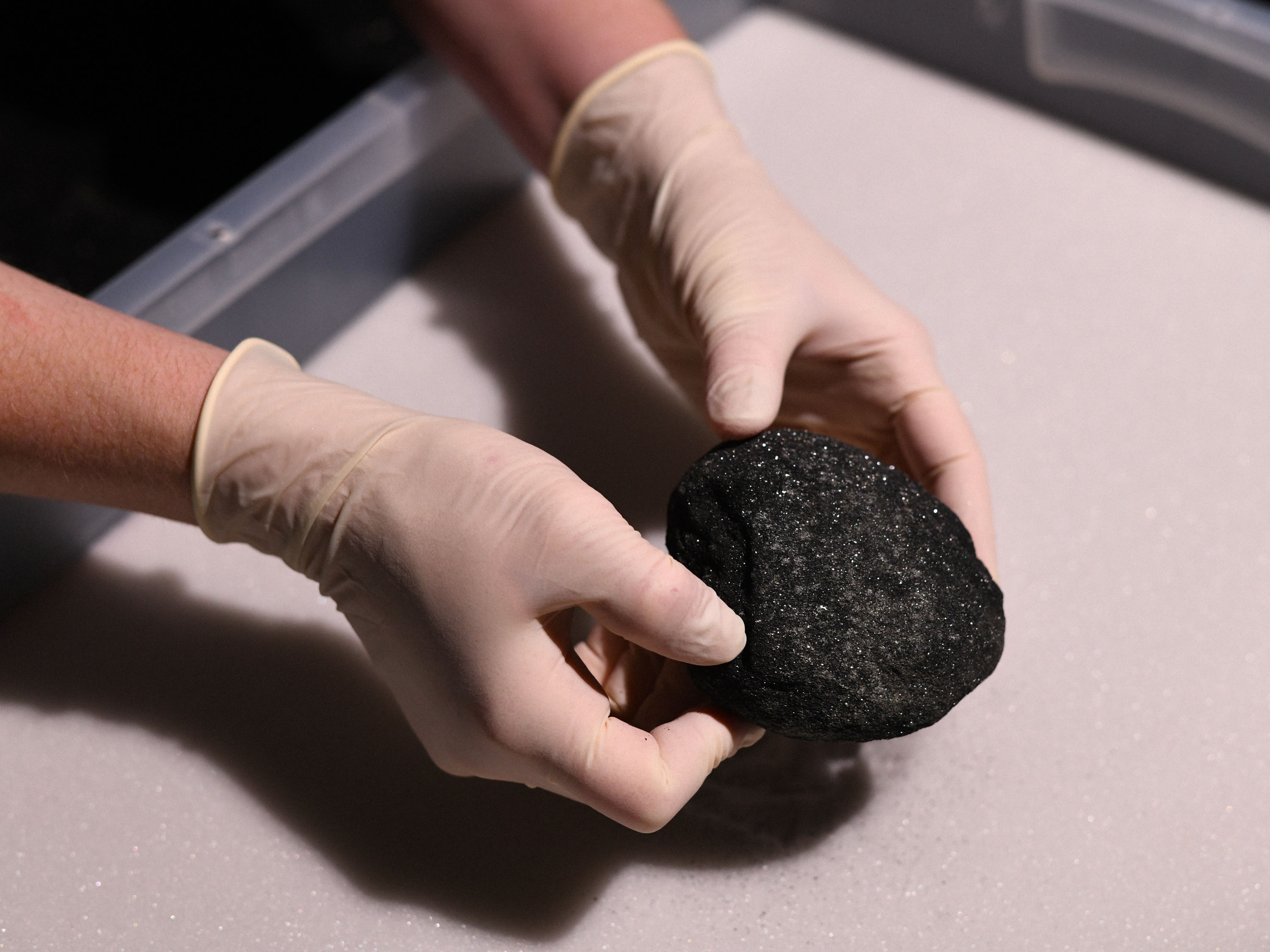
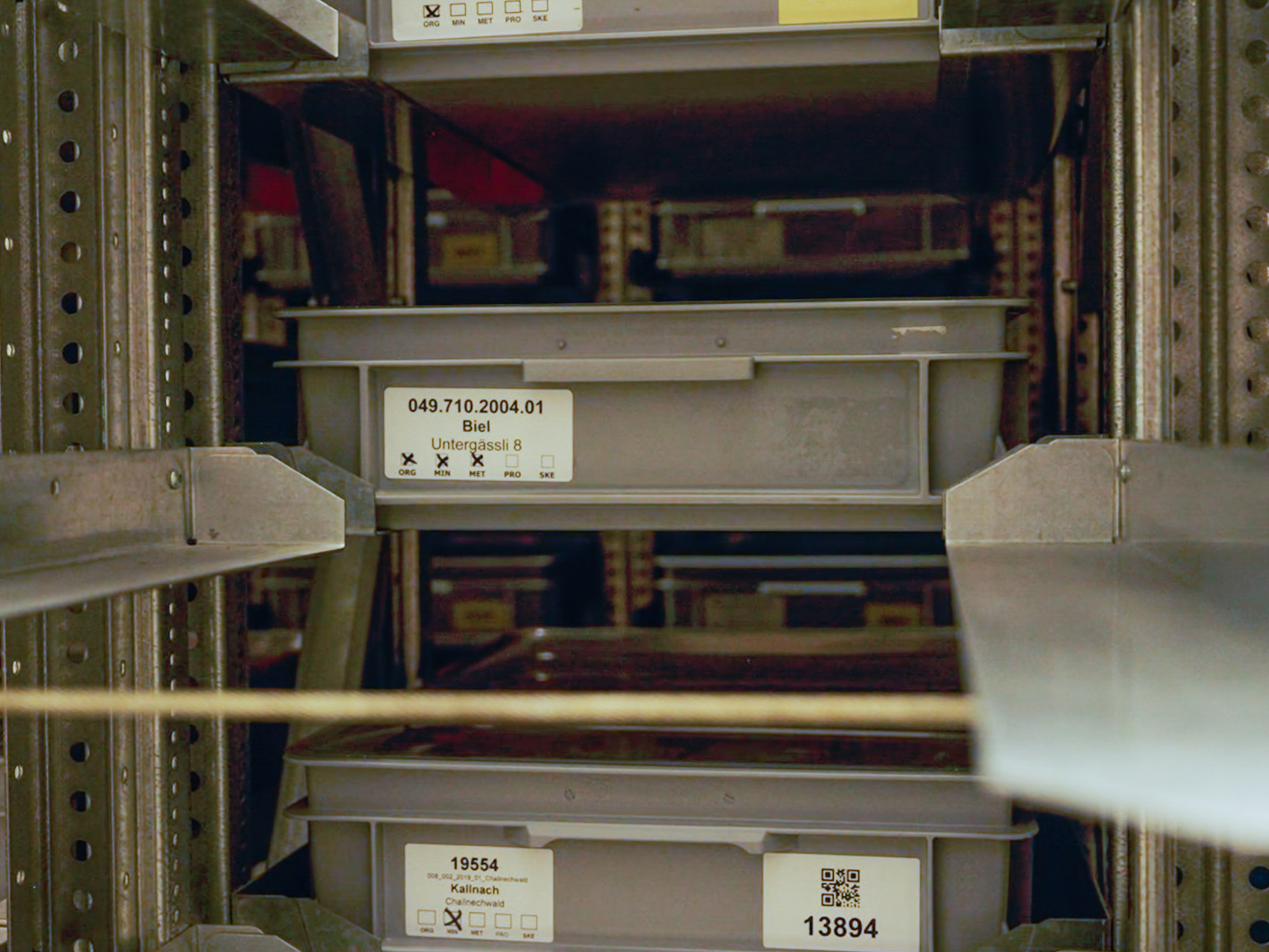
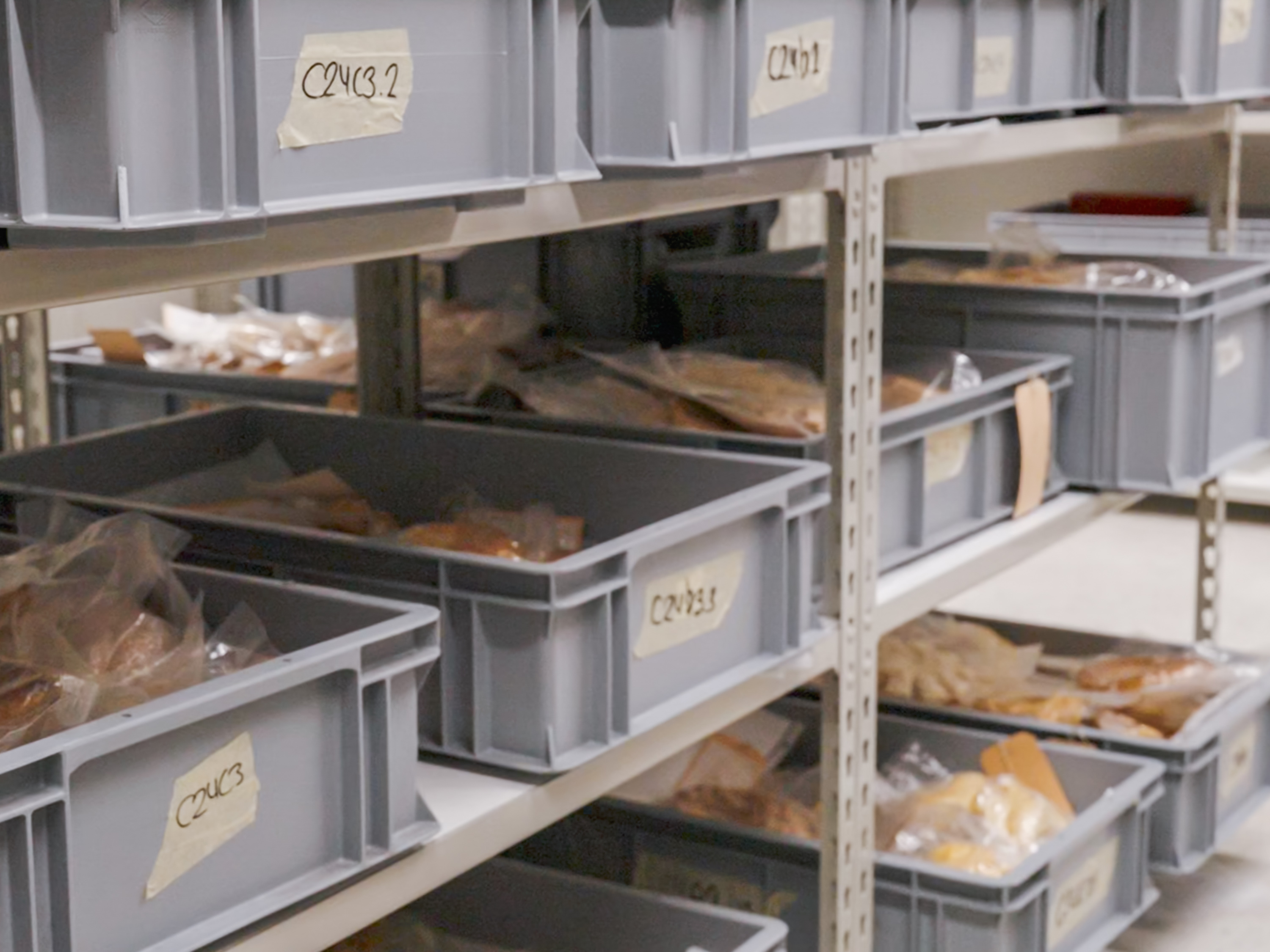

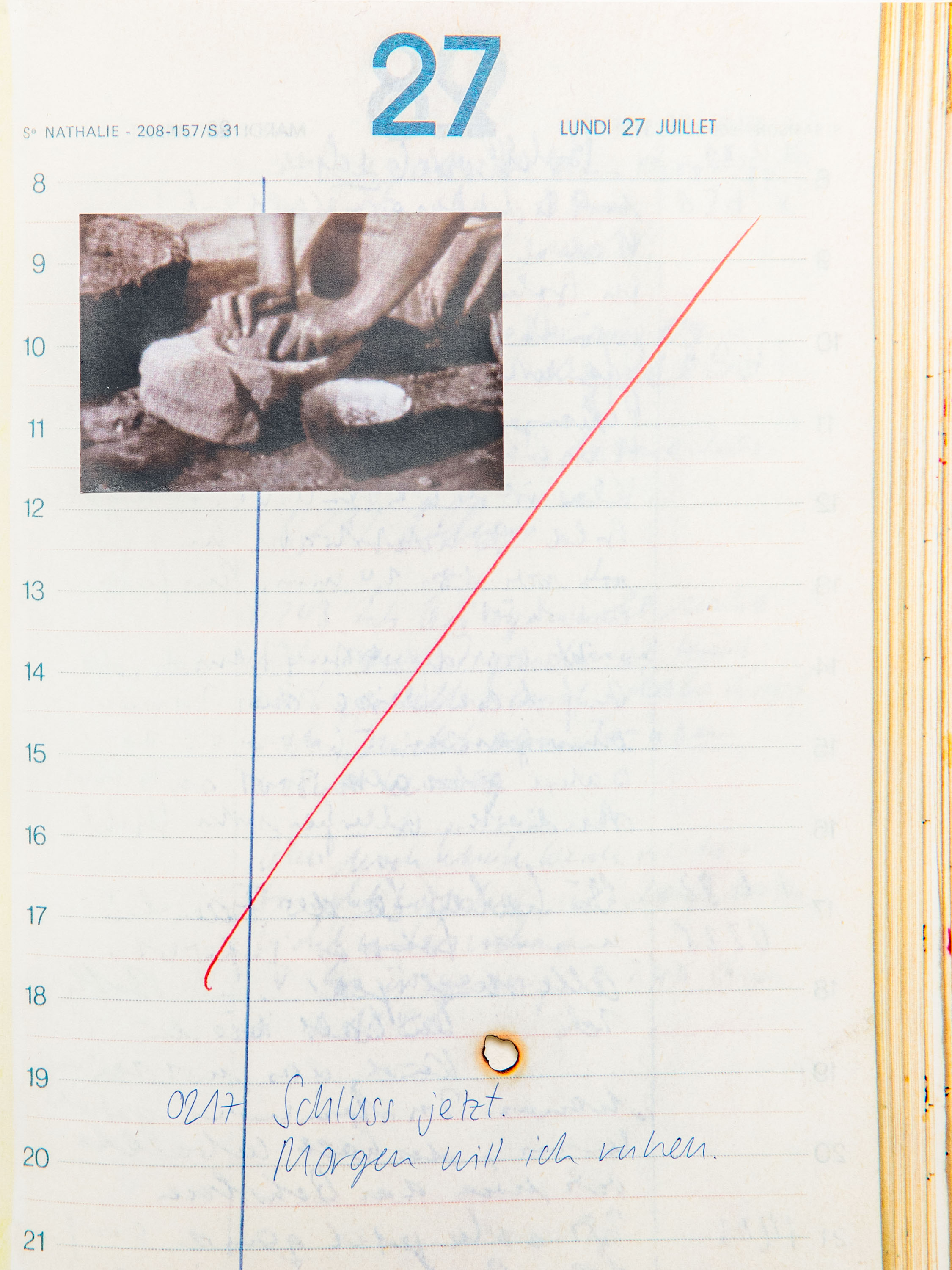


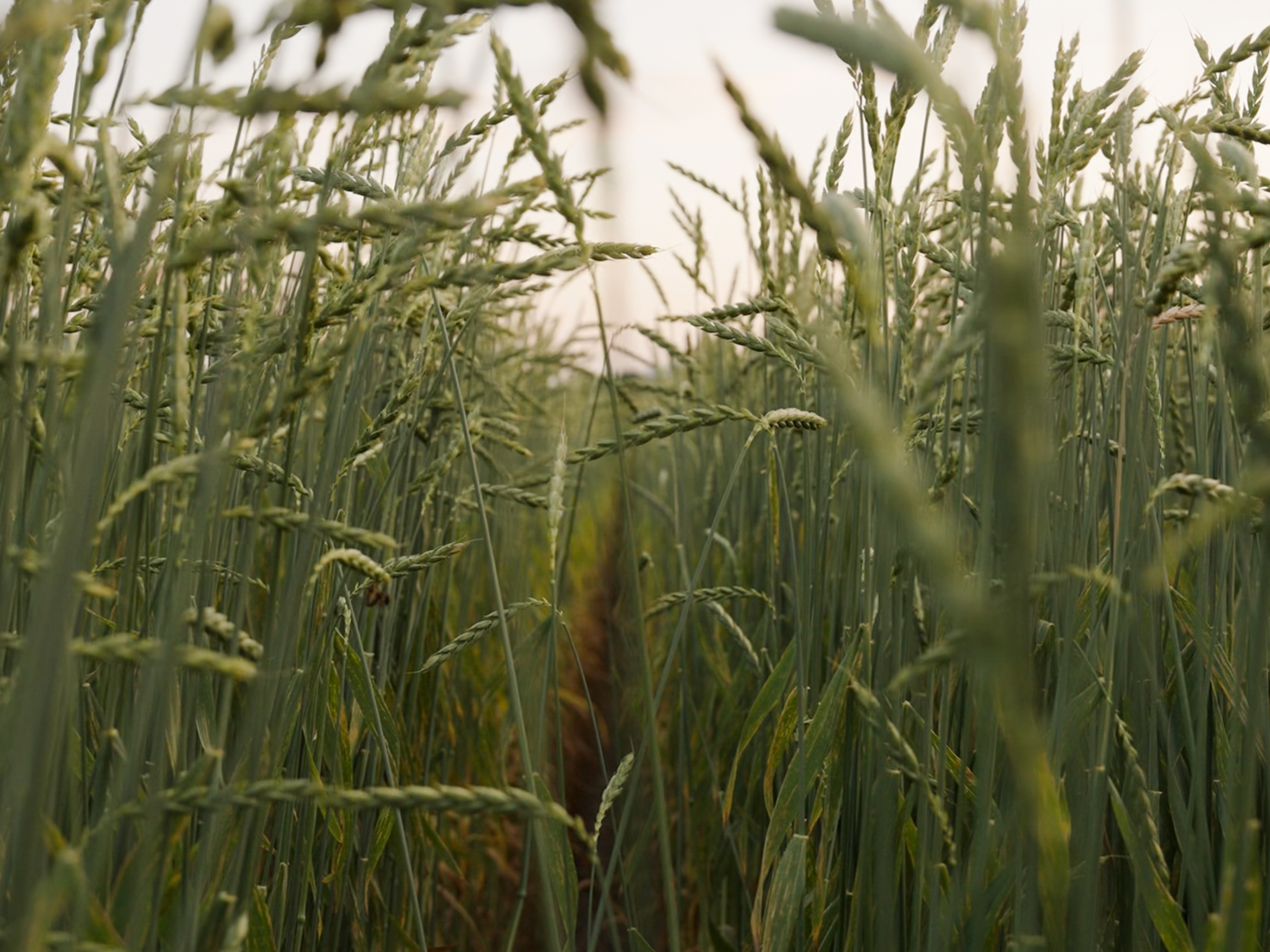
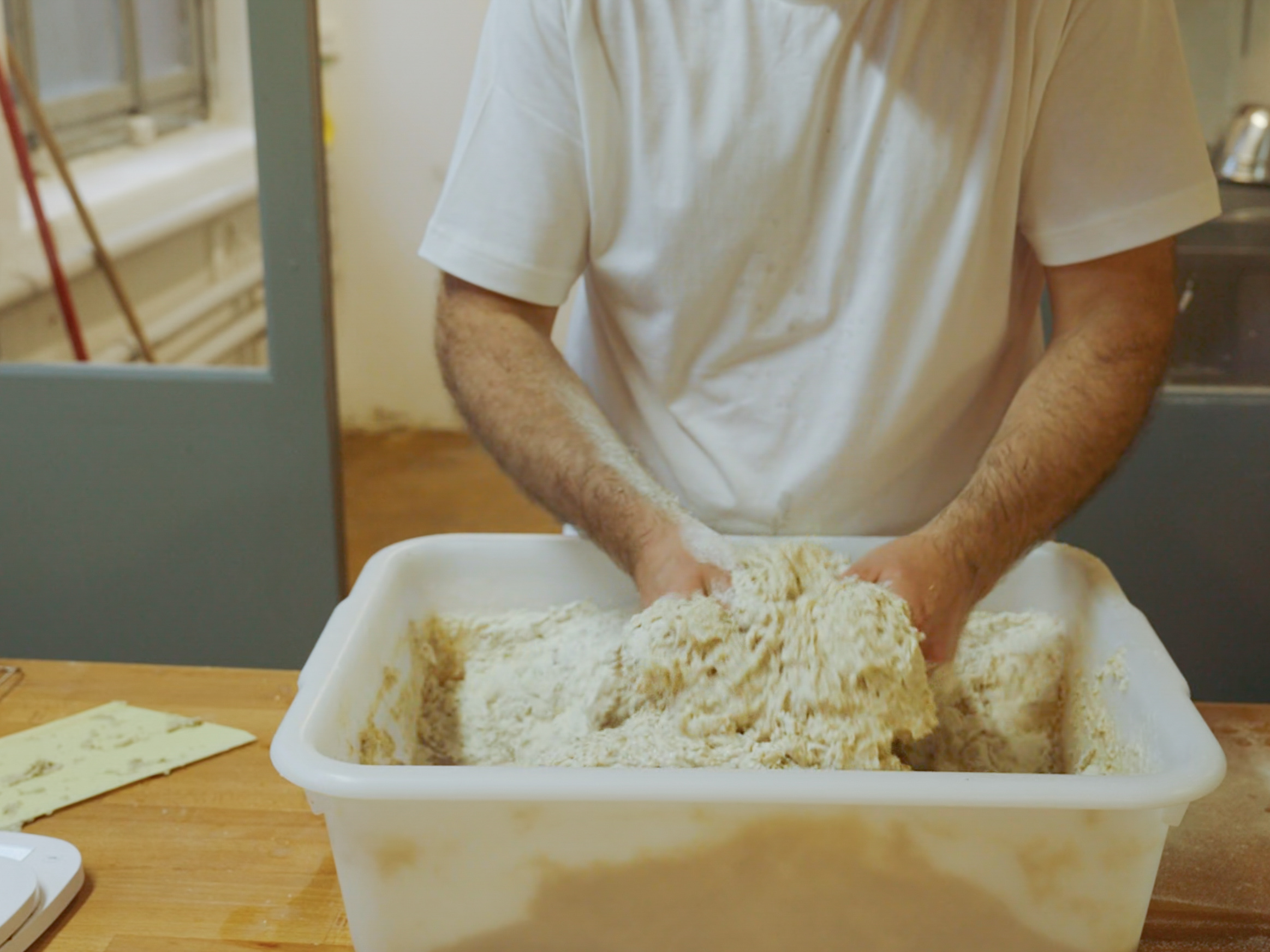
︎︎︎ Le goût du futur is part of the bread eaters work cycle.
︎︎︎ The work is co-created with Isabelle Weber.
spill the beans!
2025 - ong.
2025 - ong.
This lecture-performance
grows out of Alexandra Baumgartner’s long-term project How like a leaf I am, shifting focus to a curated collection
of legumes – fava, lupin, peas, lentils, lablab, and more. Legumes, members of
the Fabaceae family, are known for producing pods – single-chambered capsules
that contain their seeds. In many cases, it is the seeds – often simply
referred to as beans, rather than the whole fruit – that we eat. Celebrated for
their ability to fix nitrogen and support climate-resilient farming, legumes
are key to the future of food, yet remain underappreciated in Switzerland.
Anticipating a plant-protein revolution, Baumgartner stages an encounter with these remarkable plants. In an intimate gathering, the collection comes alive in a lecture-performance, where seeds become storytellers – evoking ancestral knowledge, colonial entanglements, scientific perspectives, and emergent farming practices.
The first phase of research for this ongoing project was carried out in collaboration with Adèle Pautrat of the Brussels-based organization Seeds4All , with the support of foodculture days .
This research centered on an in-depth examination of the place of legumes in Switzerland, beginning with their history, particularly in mountain regions where the work of Sortengarten Erschmatt has been indispensable. Baumgartner and Pautrat explored the potential of ancient faba varieties and the revitalization of their cultivation in Valais. Later, their attention turned to specific farming techniques for legumes, leading them to the fields of Gerald Huber in Aubonne – who over the years has refined methods of direct seeding and mixed cropping with faba beans – and to Bruno Graf in Payerne, a Swiss pioneer of vegan agriculture.
In parallel, Baumgartner investigated what her own gardening practice and expanding seed collection could reveal, tracing the journeys of the seeds she had received from fellow seed keepers, along with the stories and fragments of knowledge that did – or did not – accompany them.
Anticipating a plant-protein revolution, Baumgartner stages an encounter with these remarkable plants. In an intimate gathering, the collection comes alive in a lecture-performance, where seeds become storytellers – evoking ancestral knowledge, colonial entanglements, scientific perspectives, and emergent farming practices.
The first phase of research for this ongoing project was carried out in collaboration with Adèle Pautrat of the Brussels-based organization Seeds4All , with the support of foodculture days .
This research centered on an in-depth examination of the place of legumes in Switzerland, beginning with their history, particularly in mountain regions where the work of Sortengarten Erschmatt has been indispensable. Baumgartner and Pautrat explored the potential of ancient faba varieties and the revitalization of their cultivation in Valais. Later, their attention turned to specific farming techniques for legumes, leading them to the fields of Gerald Huber in Aubonne – who over the years has refined methods of direct seeding and mixed cropping with faba beans – and to Bruno Graf in Payerne, a Swiss pioneer of vegan agriculture.
In parallel, Baumgartner investigated what her own gardening practice and expanding seed collection could reveal, tracing the journeys of the seeds she had received from fellow seed keepers, along with the stories and fragments of knowledge that did – or did not – accompany them.
Filed under: artistic research, lecture performance, collaboration
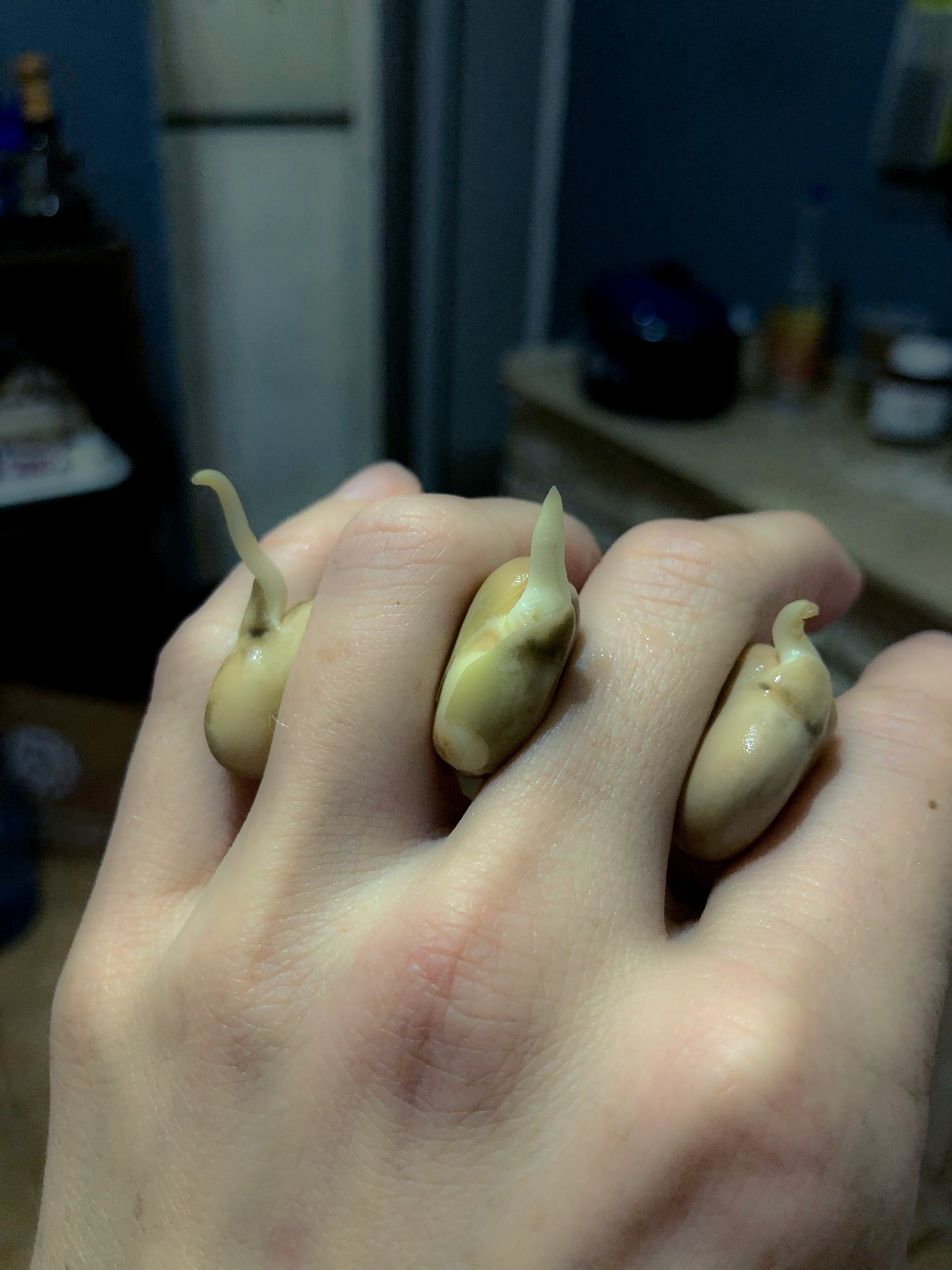

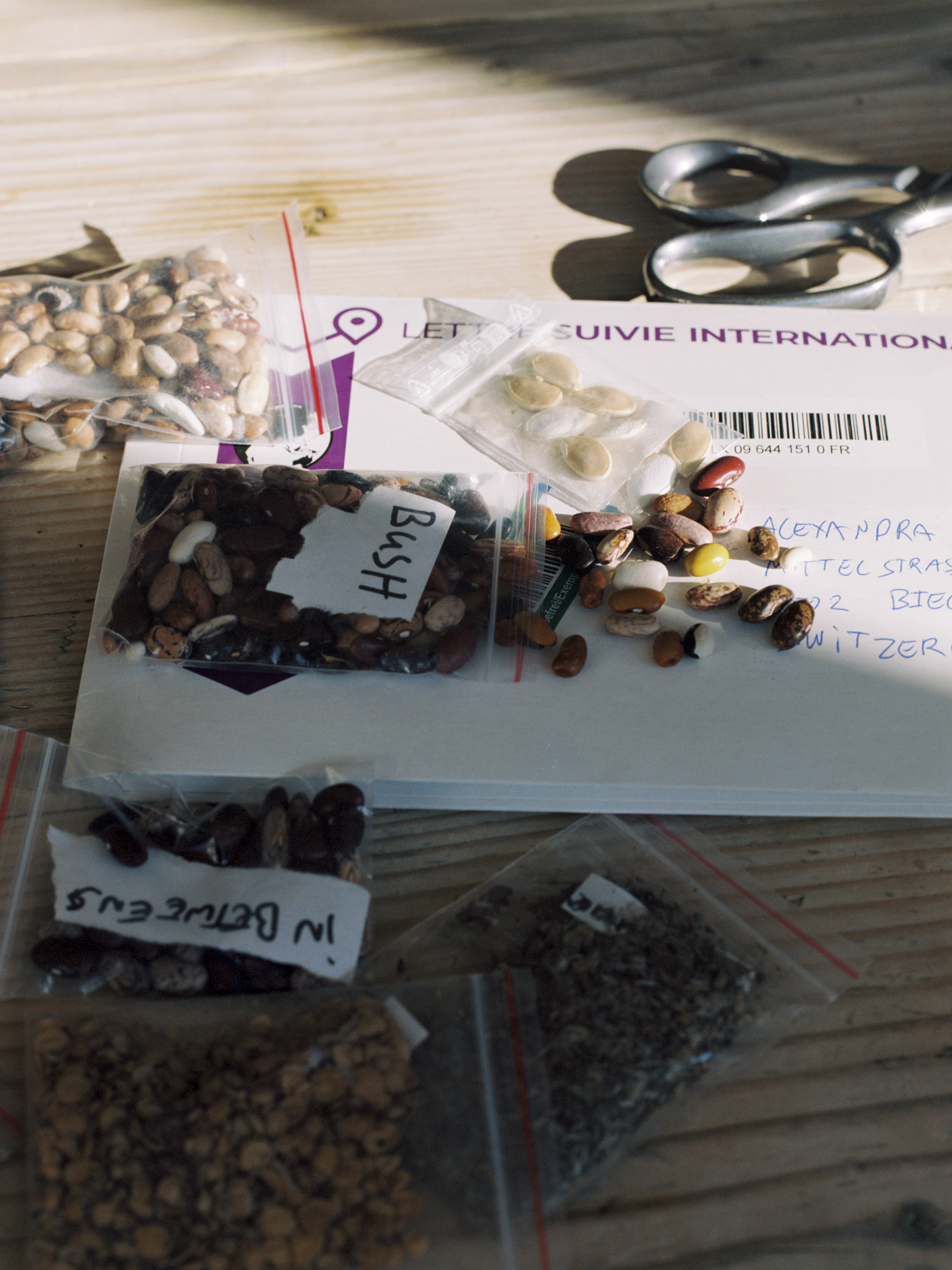

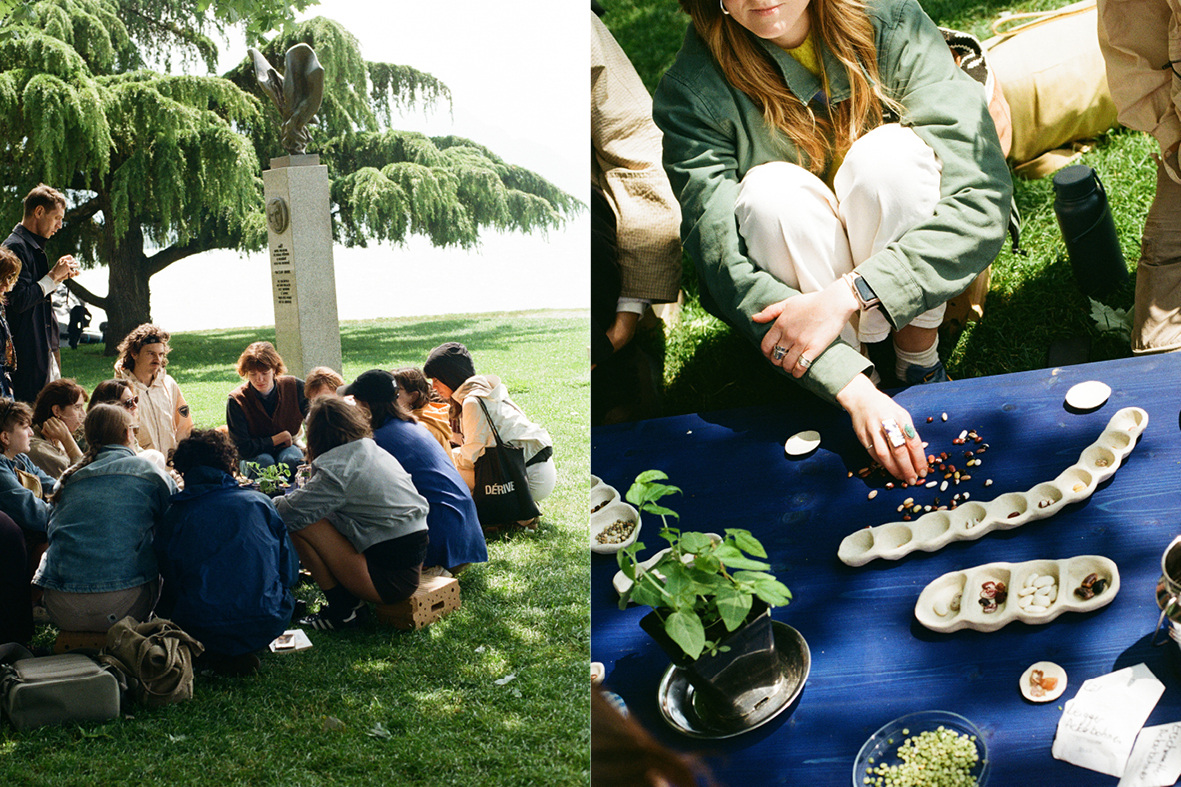
Images: 1-3 Alexandra Baumgartner, 4-5 Benedetta Stefani for foodculture days.
︎︎︎ In the context of the foodculture days biennial 2025 , the artistic research project spill the beans! cross-pollinated with several other interventions — namely Grace Denis’ ecopedagogy program An Ecology of Encounters with the school Plan Dessus, the culinary propositions of Grace Denis and artisan Aziadé Cirlini, and the Musée du Jeu in La Tour-de-Peilz, in connection with their exhibition on games and agriculture, where a workshop on the seed-based mancala game was held during the biennial.
︎︎︎ Find the report of the collaborative research with Seeds4All here (part 1/part 2).
tany fivelomana
2025
2025
tany fivelomana – between land and forest is an on-going work developed in collaboration with Malagasy artist Antsa Arimalala. The multichannel audiovisual installation invites viewers into a space formed by imaginaries and testimonies collected in Madagascar and Switzerland, two places linked through global biodiversity conservation. By layering perspectives, this work in progress explores how interventions on the land give rise to fragmented realities.
Hearing and not hearing voices, seeing and not seeing forest—a site takes shape through the tensions between care and control, presence and erasure. Approaching ‘land’ as tany fivelomana—‘land for life’—in the sense of sustaining continuity and growth, the ‘forest’ expands.
Questioning how Western nature paradigms contribute to and are held accountable in times of ecological upheaval the work in progress seeks to further analyse the imaginaries and images that are produced by nature conservation.
Hearing and not hearing voices, seeing and not seeing forest—a site takes shape through the tensions between care and control, presence and erasure. Approaching ‘land’ as tany fivelomana—‘land for life’—in the sense of sustaining continuity and growth, the ‘forest’ expands.
Questioning how Western nature paradigms contribute to and are held accountable in times of ecological upheaval the work in progress seeks to further analyse the imaginaries and images that are produced by nature conservation.
Filed under: intallation,artistic research, collaboration


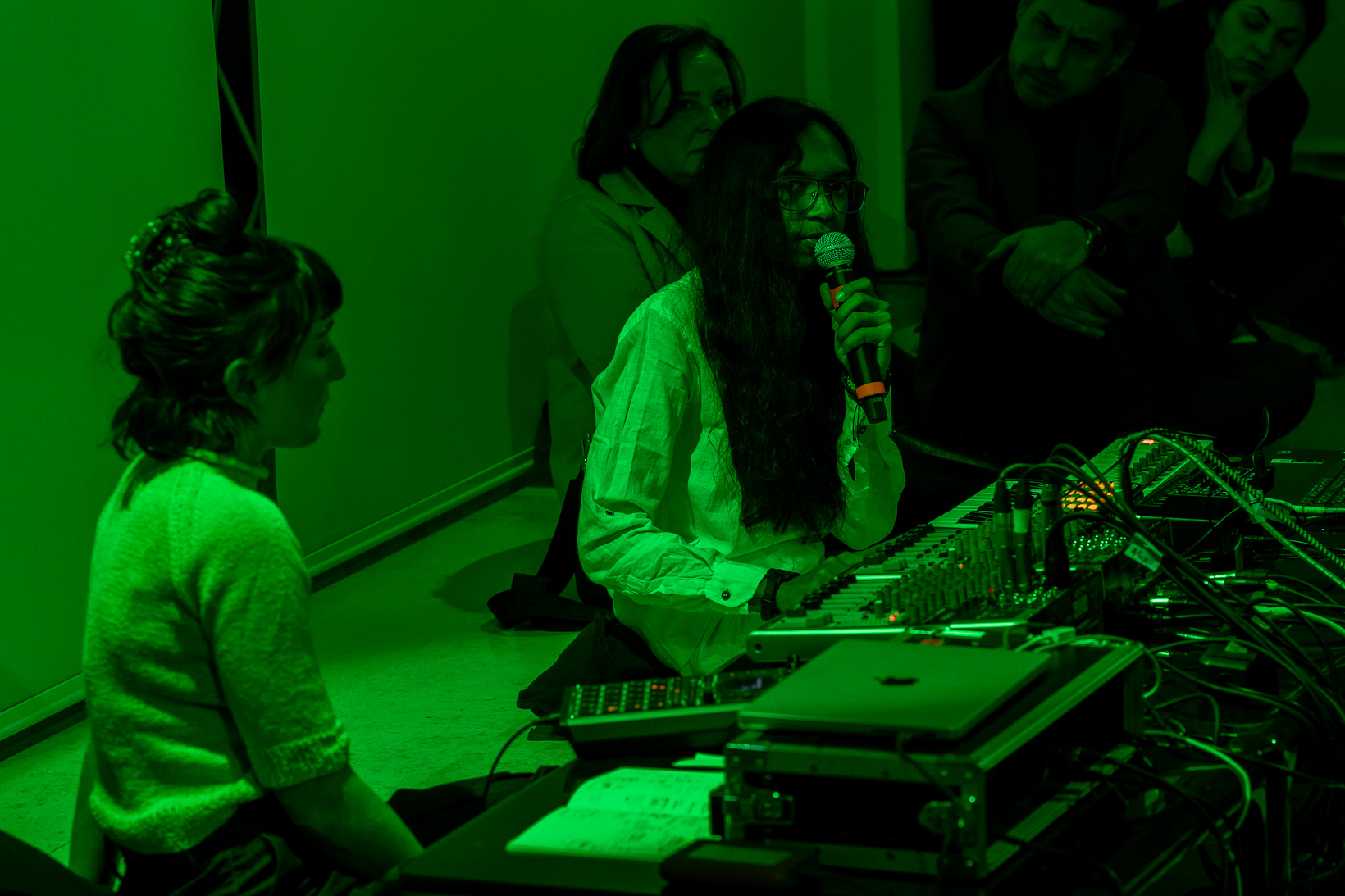


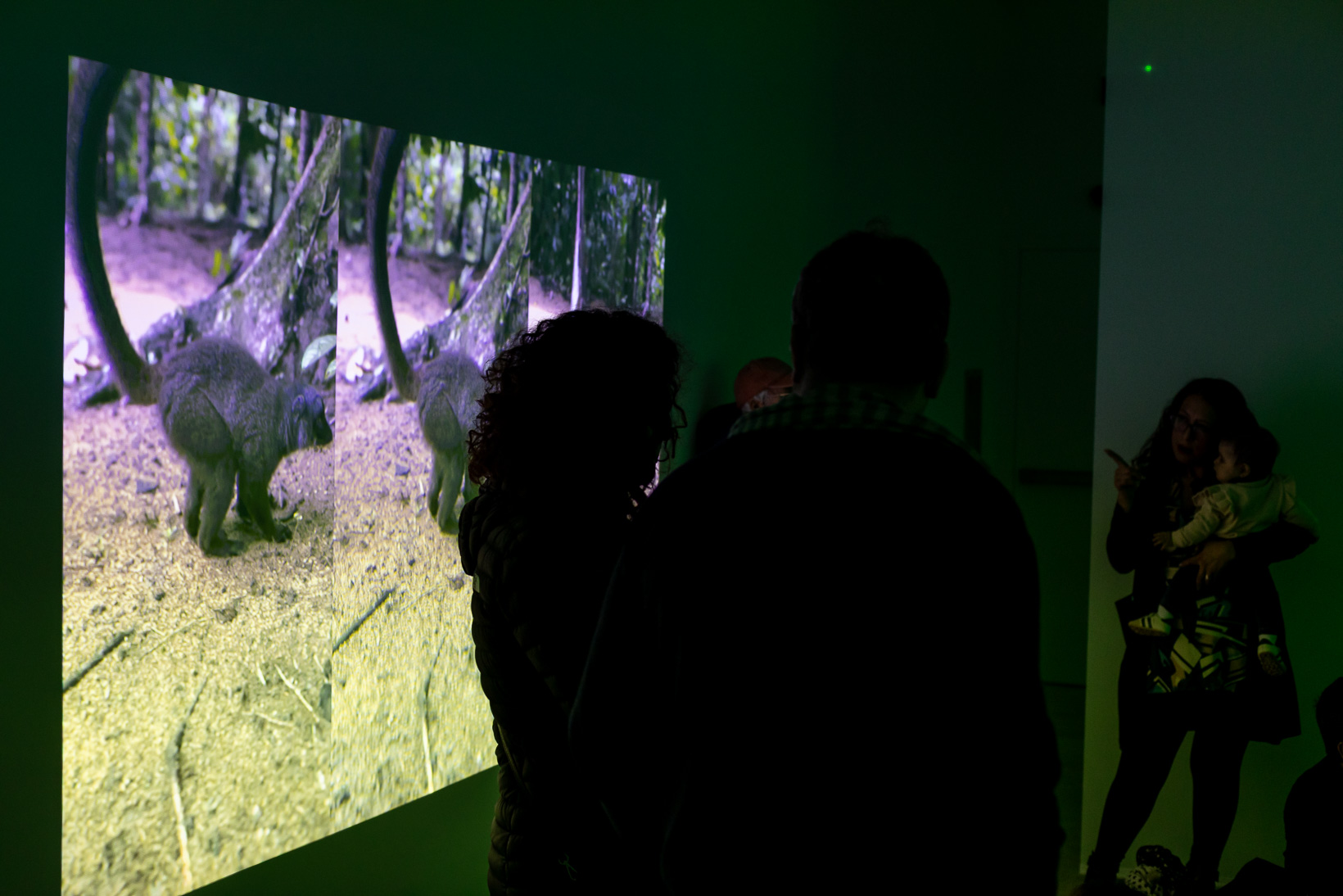


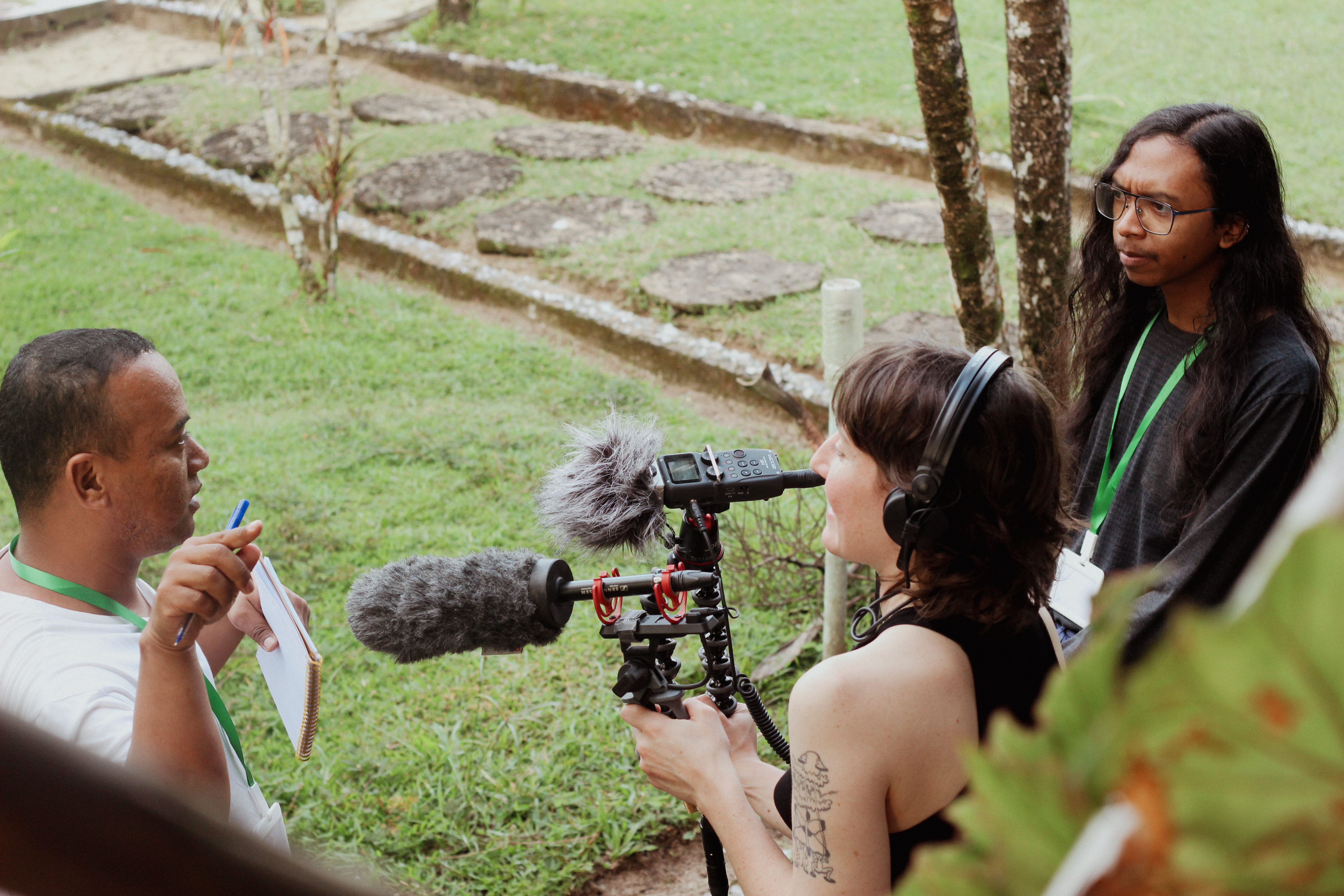
Images: Istituto Svizzero, Antsa Arimalala, Daria Vuistiner.
︎︎︎ The work was developed during the ON FOREST (2024 - 2025) residency programme of Istituto Svizzero and Wyss Academy For Nature. First results were presented in a public event on the 28th of March at Istituto Svizzero in Rome.
︎︎︎ tany fivelomana – between land and forest is co-created with Antsa Arimalala (Encoder Experiment).
SEED CARRIERS E1
2024
2024
Why are we losing seed diversity around the world? And how can we secure the fundamental rights to seeds in Europe?
SEED CARRIERS is an initiative by the artist-run association Institut Plapamco and the network Let’s Liberate Seed Diversity!. Bridging the worlds of art, activism, and science, this audio-documentary series explores the possibilities of storytelling about seeds from a European perspective. In doing so, SEED CARRIERS addresses the accelerating decline of seed and agricultural diversity, which constitutes the foundation of all life.
Tackling the lack of societal dialogue around seed politics, SEED CARRIERS aims to create a vibrant body of knowledge reflecting endeavors to protect, provision, and develop seed and crop diversity.
Episode 1 "Seeds As Time Capsules" begins with a basic description of seeds. What are these fascinating living entities we call “seeds” capable of, and how are they kept? This episode features perspectives from genbank scientist Boulos Chalhoub at the Swiss center for agricultural research Agroscope, small-scale farmer and seed keeper József Hegyesi (Magház), and seed policy expert Katherine Dolan (Arche Noah). Critically examining conservation strategies for seeds, their intertwined domestication histories, ancestral and newly established practices of commoning, and the human-plant relationships seed keepers engage with, SEED CARRIERS provides rich insights into the world of seeds, spanning both the so-called formal and informal sectors.
Join us on our three-part venture into the world of seeds. Listen to SEED CARRIERS Episode 1 “Seeds As Time Capsules” on Spotify, Apple Podcast and Soundcloud.
SEED CARRIERS has been developed by Alexandra Baumgartner, Anna Froelicher, Kim Schelbert and Matthias Lorimer of the European Coordination Let’s Liberate Diversity.
SEED CARRIERS is an initiative by the artist-run association Institut Plapamco and the network Let’s Liberate Seed Diversity!. Bridging the worlds of art, activism, and science, this audio-documentary series explores the possibilities of storytelling about seeds from a European perspective. In doing so, SEED CARRIERS addresses the accelerating decline of seed and agricultural diversity, which constitutes the foundation of all life.
Tackling the lack of societal dialogue around seed politics, SEED CARRIERS aims to create a vibrant body of knowledge reflecting endeavors to protect, provision, and develop seed and crop diversity.
Episode 1 "Seeds As Time Capsules" begins with a basic description of seeds. What are these fascinating living entities we call “seeds” capable of, and how are they kept? This episode features perspectives from genbank scientist Boulos Chalhoub at the Swiss center for agricultural research Agroscope, small-scale farmer and seed keeper József Hegyesi (Magház), and seed policy expert Katherine Dolan (Arche Noah). Critically examining conservation strategies for seeds, their intertwined domestication histories, ancestral and newly established practices of commoning, and the human-plant relationships seed keepers engage with, SEED CARRIERS provides rich insights into the world of seeds, spanning both the so-called formal and informal sectors.
Join us on our three-part venture into the world of seeds. Listen to SEED CARRIERS Episode 1 “Seeds As Time Capsules” on Spotify, Apple Podcast and Soundcloud.
SEED CARRIERS has been developed by Alexandra Baumgartner, Anna Froelicher, Kim Schelbert and Matthias Lorimer of the European Coordination Let’s Liberate Diversity.
Filed under:collaboration, audio



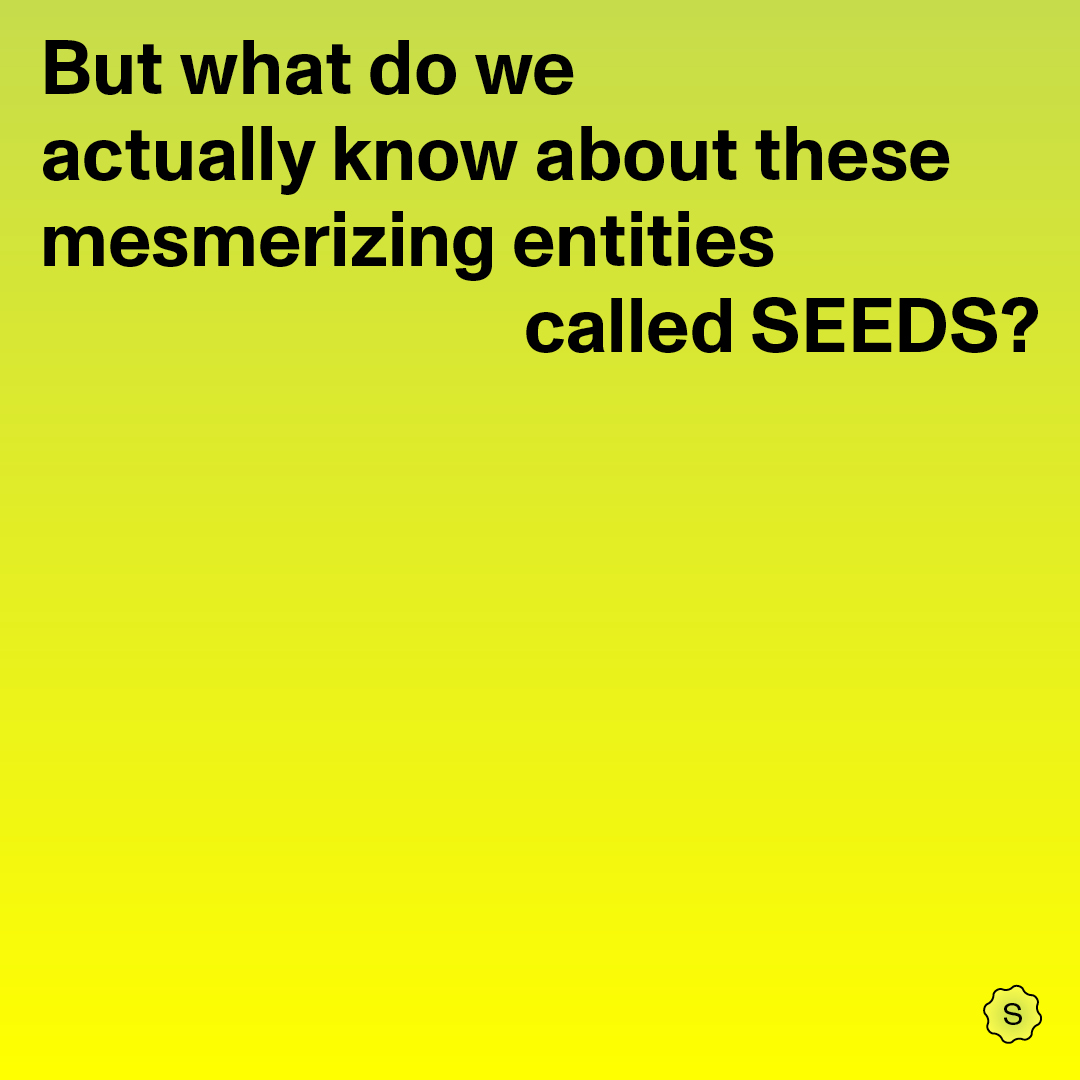


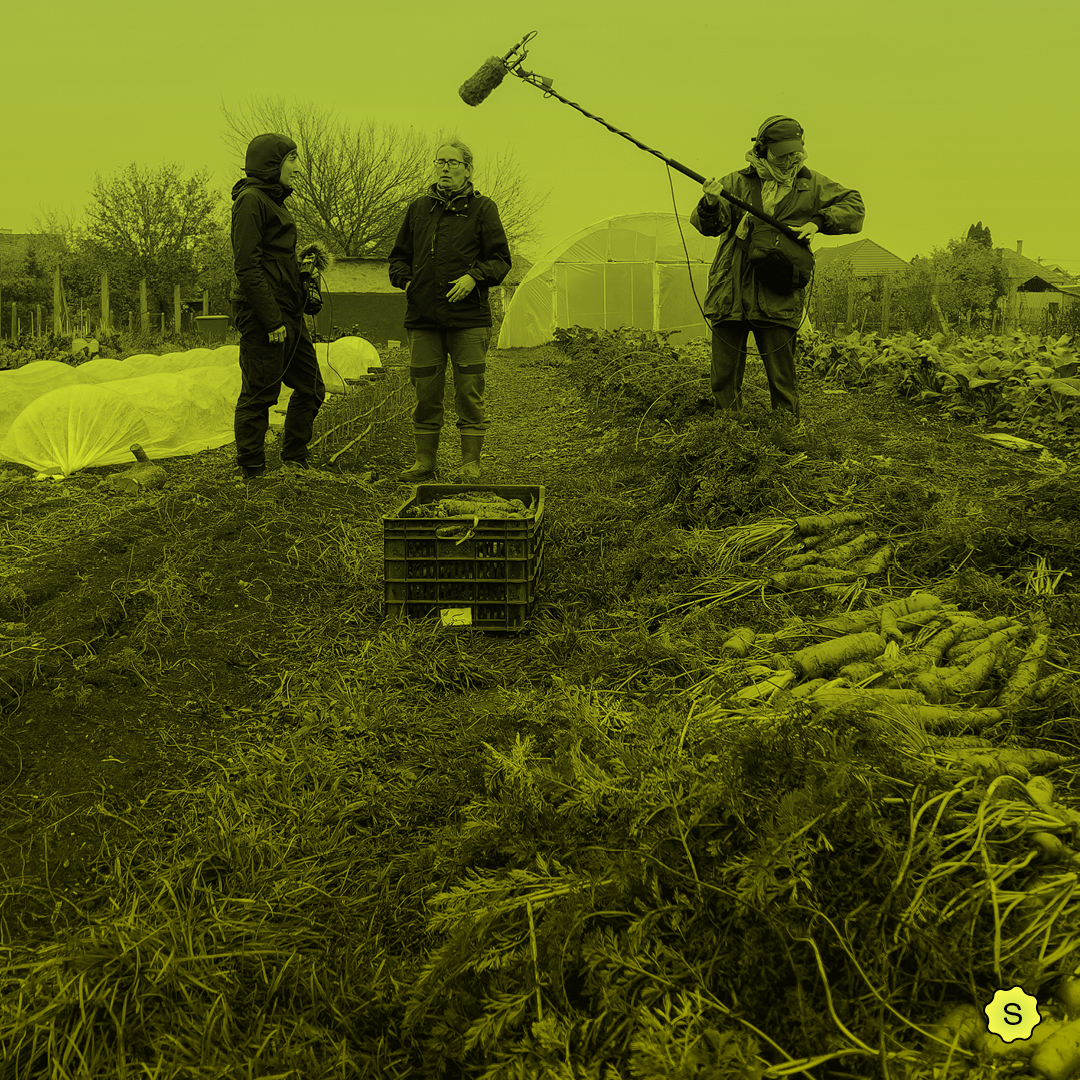


To receive updates on future releases and events, sign up for our newsletter below.
︎︎︎ SEED CARRIERS is supported by Pro Helvetia, Migros Kulturprozent, Mobiliar Jubiläumsstiftung and Corymbo Foundation.
︎︎︎ SEED CARRIERS: Episode 1 “Seeds as Time Capsules” (released 29.08.2024) Publisher Verein Institut Plapamco, Production Alexandra Baumgartner, Anna Froelicher, Kim Schelbert, Matthias Lorimer, Music Andrew Morrison, Voice Acting Deborah Macauley, Mixing & Mastering Julia Häller, Music Mastering Daniel Good, Copy Editing Monique Todd, Graphic Design Emmanuel Crivelli / Dual Room, Illustration Lena Scheiwiller, Advisory Board Kenza Benabderrazik, Gilles Aubry,Simon Grab Contributors Tubi Malcharzik, Borbála Lipka, Weronika Koralewska, Radio 3FACH
Plant People Unite!
2024
2024
Plant People Unite! has emerged as an experiment, and a wish to create a collection of thoughts and suggestions on how to make bonds with plants, reflecting on our own practice. As a group of artists moved and inspired by the plant world, we aim to engage in a broader dialogue about what tuning into "plantiness" means to others and how we can all become a bit more planty in our daily lives.
Through an open call participants were invited to share a contribution to the fanzine project which was presented during the exhibition How like a leaf I am at Photoforum Pasquart in Biel (Switzerland) from 14.9 - 24.11.2024. Visitors to the exhibition were encouraged to compile the fanzine on the spot from the contributions on display.
With the fanzine Plant People Unite! We aim to infuse the exhibition space with the beautiful communal energy surrounding seed-keeping activities and other aspects we associate with human-plant encounters, such as gardening, foraging, observing, cooking, eating, and so on...
The fanzine project Plant People Unite! Has been developed by Alexandra Baumgartner and Kim Lang under the umbrella of Institut Plapamco.
Through an open call participants were invited to share a contribution to the fanzine project which was presented during the exhibition How like a leaf I am at Photoforum Pasquart in Biel (Switzerland) from 14.9 - 24.11.2024. Visitors to the exhibition were encouraged to compile the fanzine on the spot from the contributions on display.
With the fanzine Plant People Unite! We aim to infuse the exhibition space with the beautiful communal energy surrounding seed-keeping activities and other aspects we associate with human-plant encounters, such as gardening, foraging, observing, cooking, eating, and so on...
The fanzine project Plant People Unite! Has been developed by Alexandra Baumgartner and Kim Lang under the umbrella of Institut Plapamco.
Filed under: fanzine
